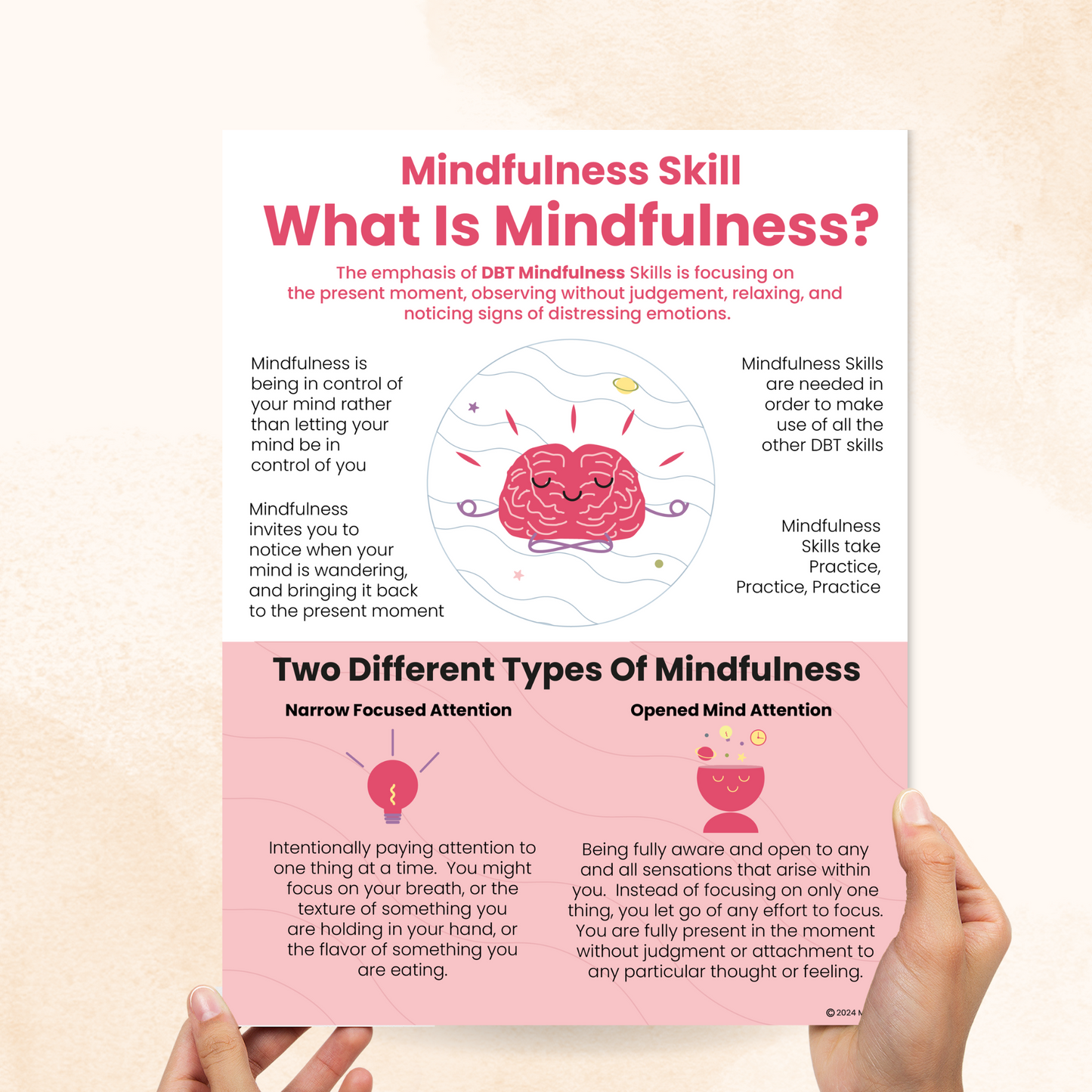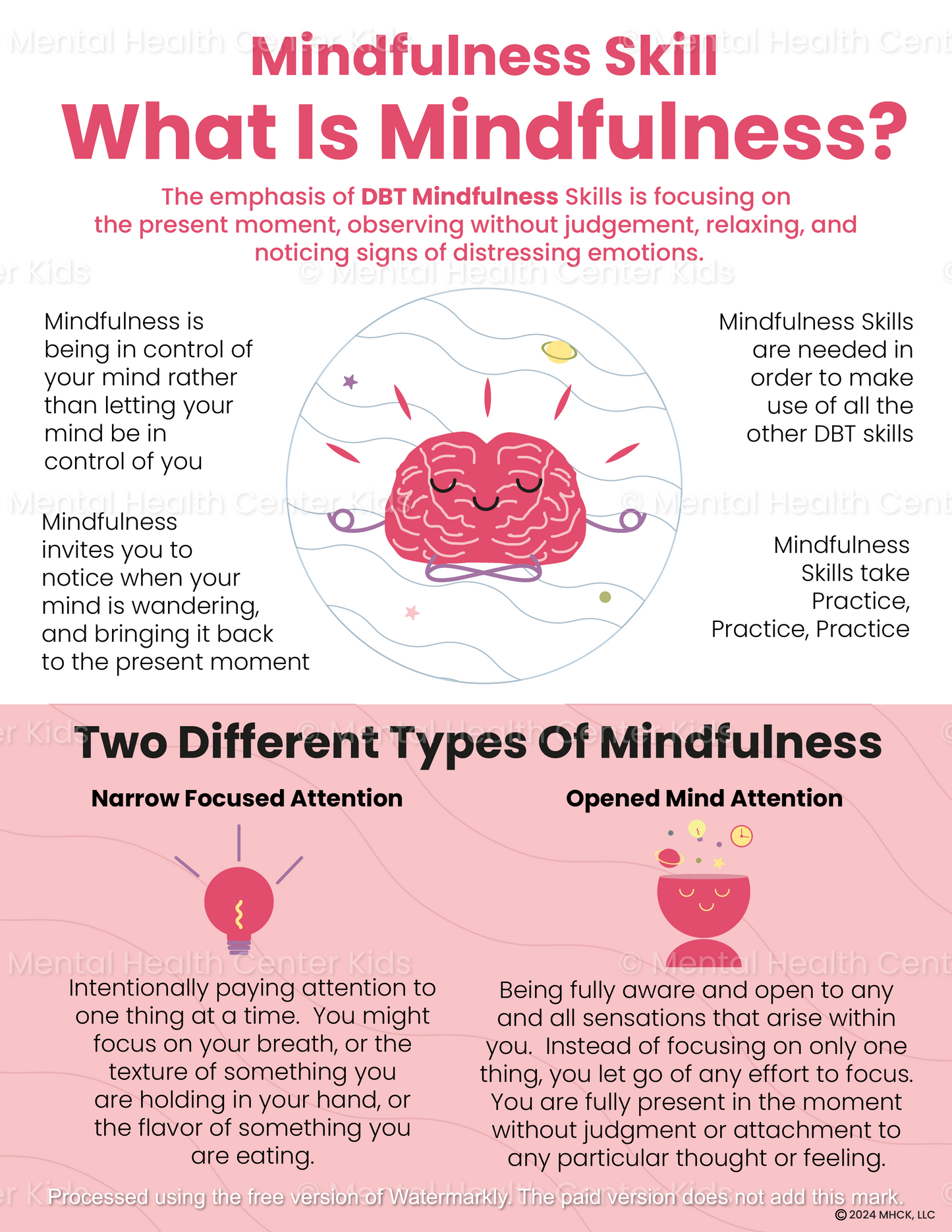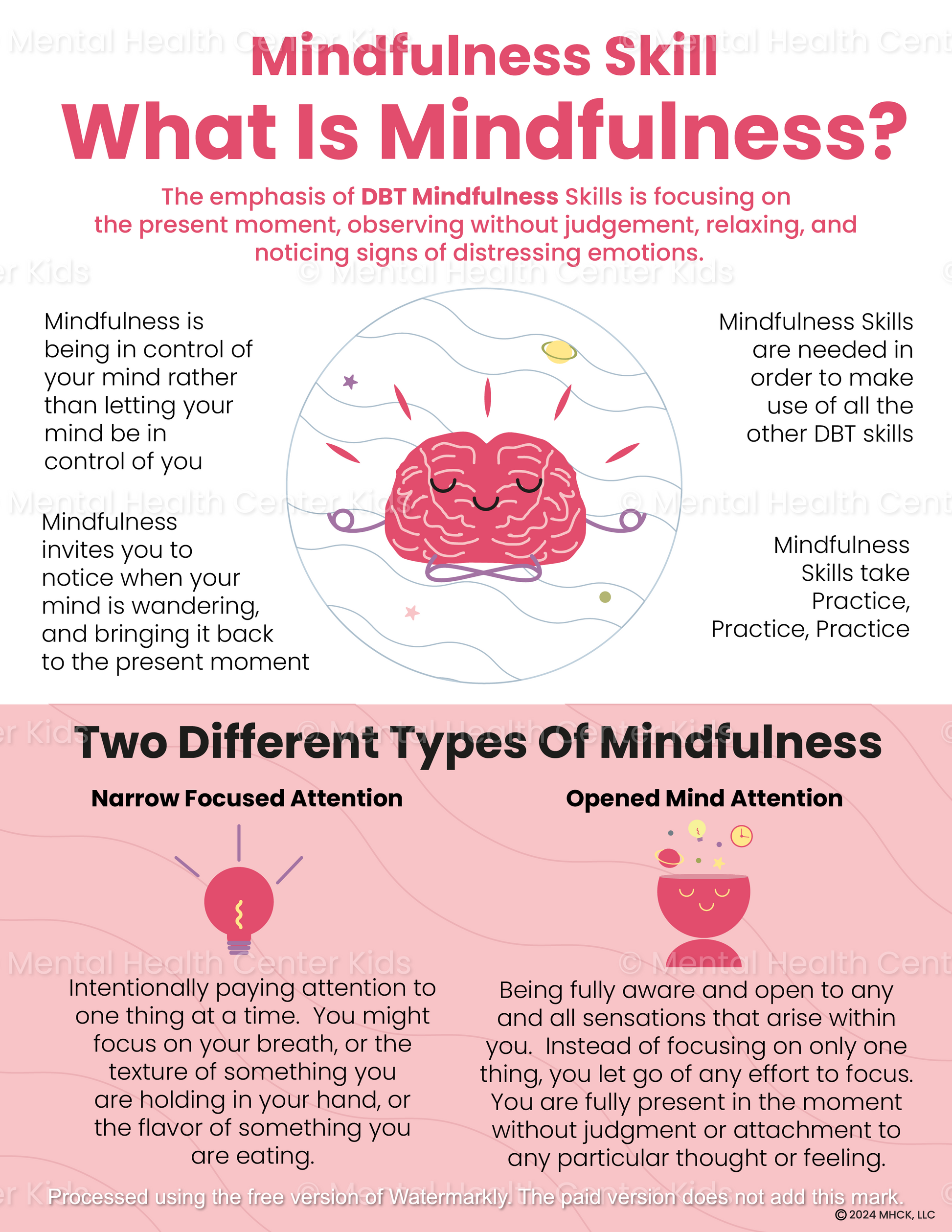What Is Mindfulness In DBT? (PDF)


Mindfulness is an essential component of Dialectical Behavior Therapy (DBT), which involves observing the present moment and accepting it as it is. Research shows that mindfulness can be particularly beneficial for young people and families who are more likely to be exposed to long-term stress.
The DBT What Is Mindfulness In DBT handout guides clients to learn what mindfulness entails — for example, it explains how mindfulness skills are used in all the other DBT skills, and how mindfulness takes practice. At the bottom of the handout, they’ll be introduced to two different types of mindfulness — narrow-focused attention and open-minded attention.
Kids and teens who practice mindfulness, especially when facing various stressors, can develop resilience over time. After they use the handout, you can introduce various mindfulness exercises, such as mindful belly breathing and body scan meditation.
Our DBT Mindfulness Skills handout is a helpful add-on for a detailed, 1-page overview of several mindfulness skills presented in DBT.
*This item is an instant digital download. A link to download your files will be emailed to you once payment is confirmed.
Want more resources like this? Check out our full catalog of DBT worksheets and handouts.
References:
- Perry-Parrish, C., Copeland‐Linder, N., Webb, L., & Sibinga, E. (2016). Mindfulness-Based Approaches for Children and Youth. Current Problems in Pediatric and Adolescent Health Care, 46(6), 172–178. https://doi.org/10.1016/j.cppeds.2015.12.006
- Zeifman, R. J., Boritz, T., Barnhart, R., Labrish, C., & McMain, S. (2020b). The independent roles of mindfulness and distress tolerance in treatment outcomes in dialectical behavior therapy skills training. Personality Disorders: Theory, Research, and Treatment, 11(3), 181–190. https://doi.org/10.1037/per0000368
- Instant digital download
- File: PDF
- Size: 8.5" x 11"



